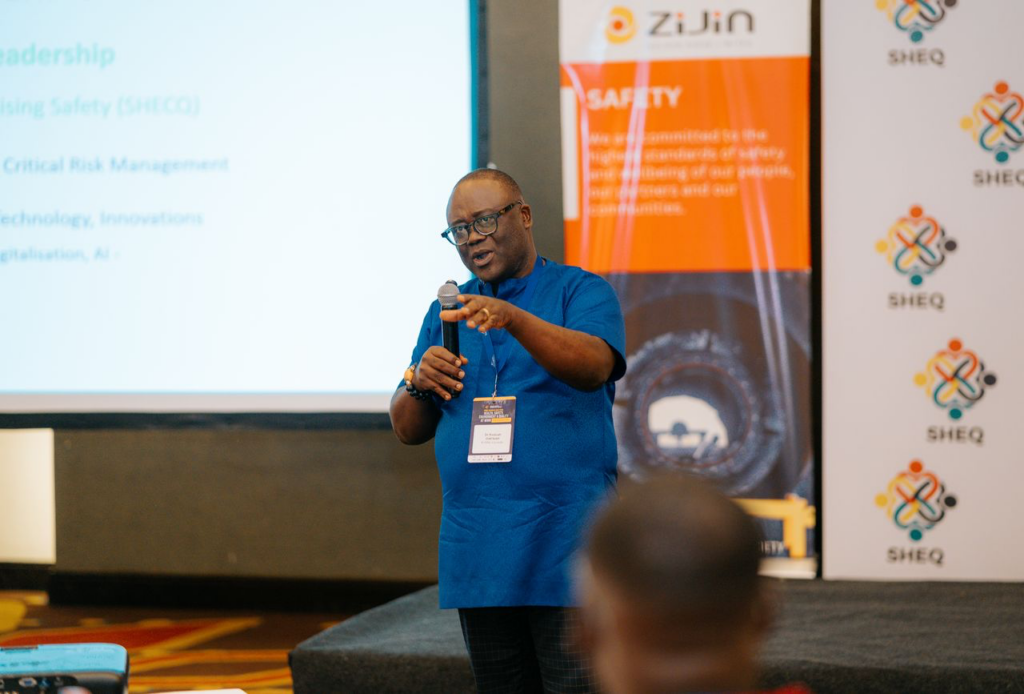Young Russians are being seduced by a cheap, dangerous weight-loss pill called Molecule
Sofya VolyanovaBBC News Russian

 Maria
Maria
Molecule, a pill promising rapid weight loss, went viral on Russian TikTok earlier this year.
Young people’s feeds started filling up with captions like “Take Molecule and forget food exists”, and “Do you want to sit in the back of the class in oversized clothes?”
Clips showed fridges lined with blue boxes featuring holograms and “Molecule Plus” labels.
The orders began piling in, as teenagers shared their “weight-loss journeys” on social media.
But there was a catch.
Maria, 22, had purchased the pill from a popular online retailer. She took two pills per day and, after two weeks, says her mouth dried up and she completely lost her appetite.
“I had absolutely no desire to eat, let alone drink. I was nervous. I was constantly biting my lips and chewing my cheeks.”
Maria developed severe anxiety and began having negative thoughts. “These pills were having a profound effect on my psyche,” she says.
Maria, who lives in St Petersburg, says she wasn’t prepared for such severe side effects.
Other TikTok users mentioned dilated pupils, tremors and insomnia. And at least three schoolchildren are reported to have ended up in hospital.

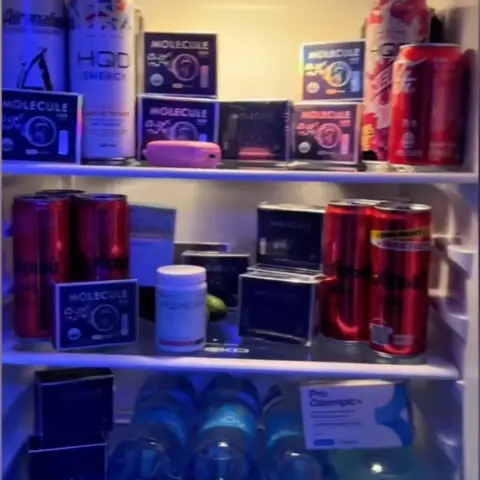 TikTok
TikTok
In April, a schoolgirl in Chita, Siberia, needed hospital care after overdosing on Molecule. According to local reports, she was trying to lose weight quickly, in time for the summer.
The mother of another schoolgirl told local media her daughter was admitted to intensive care after taking several pills at once.
And in May, a 13-year-old boy from St Petersburg needed hospital care after experiencing hallucinations and panic attacks. He had reportedly asked a friend to buy him the pill because he was being teased at school about his weight.
Substance banned in UK, EU and US
The packaging for Molecule pills often lists “natural ingredients” such as dandelion root and fennel seed extract.
But earlier this year, journalists at the Russian newspaper Izvestiya submitted pills they had purchased online for testing and found they contained a substance called sibutramine.

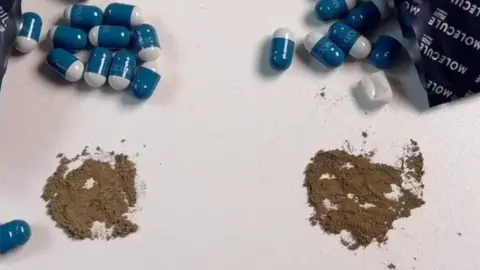 TikTok
TikTok
First used as an antidepressant in the 1980s and later as an appetite suppressant, studies later found sibutramine increased the risk of heart attacks and strokes – while only slightly promoting weight loss.
It was banned in the US in 2010, and is also illegal in the UK, EU, China and other countries.
In Russia, it is still used to treat obesity, but available only to adults and by prescription.
Purchasing and selling sibutramine without a prescription is a criminal offence. But that hasn’t stopped individuals and small businesses from selling it online – often in higher doses than legal medication – and without requiring prescriptions.
The unlicensed pills cost about £6-7 ($8-9) for a 20-day supply – much cheaper than recognised weight-loss injections like Ozempic, which on the Russian market sell for £40-160 ($50-210) per monthly pen.
“Self-administration of this drug is very unsafe,” says endocrinologist Ksenia Solovieva from St. Petersburg, warning of potential overdose risks, “because we do not know how much of the active ingredient such ‘dietary supplements’ may contain.”

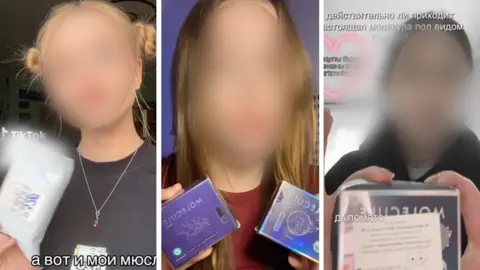 TikTok
TikTok
Russians regularly receive prison sentences for purchasing and reselling Molecule pills. But it’s proving difficult for authorities to get a grip on the drug being sold illegally.
In April, the government-backed Safe Internet League reported the growing trend involving young people to the authorities – prompting several major online marketplaces to remove Molecule from sale. But it soon began appearing online under a new name, Atom, in near-identical packaging.
A law was recently passed allowing authorities to block websites selling “unregistered dietary supplements” without a court order – but sellers have been getting around this by categorising them as “sports nutrition” instead.
On TikTok, you can find retailers selling Molecule under listings that look like they are for muesli, biscuits and even lightbulbs. And some retailers aren’t even trying to hide it any more.
A few weeks ago, the BBC found Molecule listings on a popular Russian online marketplace. When approached for comment, the site said it had promptly removed any products containing sibutramine. But it admitted it was difficult to find and remove listings that didn’t explicitly mention sibutramine.
If you do manage to get your hands on Molecule, it’s hard to know exactly what you’re getting – and it’s unclear where the pills are being manufactured.
The BBC found some sellers with production certificates from factories in Guangzhou and Henan, in China. Others claim to be sourcing the pills from Germany.
Some packets state they were produced in Remagen in Germany – but the BBC has discovered there is no such company listed at the address given.
Certain Kazakh vendors selling Molecule to Russians told the BBC they bought stock from friends or warehouses in the capital Astana but couldn’t name the original supplier.
- Details of support with eating disorders in the UK are available at BBC Action Line
Meanwhile, online eating-disorder communities have become spaces where Molecule is promoted, with users relying on hashtags and coded terms to slip past moderation.
Ms Solovieva says Molecule is particularly harmful when taken by young people who already have eating disorders. For those in or near relapse, an easily available appetite suppressant can be seriously dangerous, she says.
Anna Enina, a Russian influencer with millions of followers who herself has admitted using unlicensed weight-loss pills in the past, publicly warned her subscribers: “As someone who has struggled with an eating disorder… the consequences will be dire. You’ll regret it tenfold.”

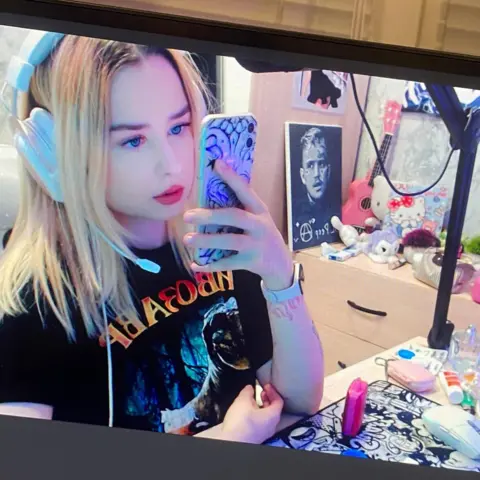
Twenty-two-year old Maria suffered bad side effects, and is one of those who regrets it. After taking too many Molecule pills, she was sent to hospital.
Now she discourages other young women and girls from taking the pills in weight-loss forums. She even reached out to one teenage user’s parents to alert them.
But Molecule remains popular online.
And every video that appears on Maria’s TikTok feed is a reminder of the pills that made her sick.



















